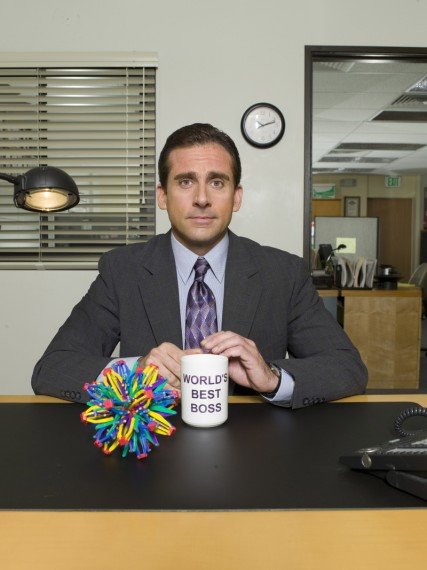- Best Buy got rid of “time and place” for workers.
- They no longer dictate work hours or workplace…where you have to work.
- They create outcome based goals for what each employee must achieve. It unleashed a whole new envelope of innovation of morale with those workers which allowed them to drive high level performance we’ve seen with Best Buy.
- Customizing workplace to meet employee needs. Provide flexibility to employees on flexibility and freedom while holing employees accountable for goals and objectives.
Category: Business
Boss vs. Leader
The boss drives people; the leader coaches them. The boss depends on authority; the leader on good will. The boss inspires fear; the leader inspires enthusiasm. The boss says ‘I’; the leader says ‘we.’ The boss fixes the blame for the breakdown; the leader fixes the breakdown. The boss says ‘go’; the leader says ‘let’s go!'”
-H. Gordon Selfridge, American-British retail magnate
Mark Twain On Business
- “The man who does not read good books has no advantage over the man who cannot read them.
- Keep away from people who try to belittle your ambitions. Small people always do that, but the really great make you feel that you, too, can become great.
- Success is a journey, not a destination. It requires constant effort, vigilance and re-evaluation.
- The secret of success is making your vocation your vacation.
- It is curious that physical courage should be so common in the world and moral courage so rare
- You cannot depend on your eyes when your imagination is out of focus.
- The secret of getting ahead is getting started. The secret of getting started is breaking your complex, overwhelming tasks into small manageable tasks, and then starting on the first one.
- Twenty years from now you will be more disappointed by the things that you didn’t do than by the ones you did do. So throw off the bowlines. Sail away from the safe harbor. Catch the trade winds in your sails. Explore. Dream. Discover.
- Always do right. This will gratify some people and astonish the rest.
- It is better to keep your mouth closed and let people think you are a fool than to open it and remove all doubt.”
Creating Collaboration Takes More Than Technology
Evan Rosen wrote a nice article in Business Week titled “Creating Collaboration Takes More Than Technology”.
The following is a synopsis of that article: In a typical scenario, the months fly by after the collaboration tools are implemented. As the seasons change, decision-makers anticipate reaping the benefits of collaboration. And perhaps they can even point to successes within particular business units or functions. Often, though, it’s the same old story. The company remains for the most part internally competitive, hierarchical, and command-and-control driven. The tools alone have failed to make the company collaborative. Worse yet, the tools may have created no real value, and the decision-makers who had pinned such high hopes on these tools are surprised. Are the tools the problem? More likely, the problem is the organization. When tools fail to create value, it’s usually because decision-makers adopt tools before the company’s culture and processes are collaboration-ready.
Organizations even adopt tools for the wrong reasons, primarily the belief that tools will create collaboration. Tools merely offer the potential for collaboration. Unlocking the value of tools happens only when an organization fits tools into collaborative culture and processes. If the culture is hierarchical and internally competitive, it will take more than tools to shift the culture. Just because a competitor uses collaborative tools doesn’t mean the time is right for your organization to do likewise. If the competitor is apparently deriving value from tools, maybe it’s because the competitor’s culture is more collaborative and the tools are extending and enhancing the culture.
To help fix the issue he recommends the following:
- Focus on Culture Before Tools
- Fit Tools into Business Processes
- Adopt Spontaneous Work Styles
- Use Tools to Develop Products and Services
- Give the Entire Organization Access to the Same Tools
What They Don’t Teach You In Design School
“Another thing they don’t teach you in design school is what you get paid for…Mostly, designers get paid to negotiate the difficult terrain of individual egos, expectations, tastes, and aspirations of various individuals in an organization or corporation, against business needs, and constraints of the marketplace…Getting a large, diverse group of people to agree on a single new methodology for all of their corporate communications means the designer has to be a strategist, psychiatrist, diplomat, showman, and even a Svengali. The complicated process is worth money. That’s what clients pay for.” —Paula Scher
Richard Branson: What Makes A Good Employee
Andrew Cosslet, CEO of InterContinental Hotels

Interesting interview with Andrew Cosslett, CEO of InterContinental Hotels Group, in Sunday’s New York Times in which he made a couple of observations pertinent to any business executive:
About staying in touch… “I was about 24, I ended up with Unilever, and the first job was selling ice cream in Liverpool … I learned more in those nine months than I think I’ve ever learned since. Unilever used to test their graduates as they came in — they wanted to see if we had the stamina to hang around doing the more routine stuff. Are you going to be patient, and not be recognized as the bright young thing all the time?
“So I was given this job working for Wall’s Ice Cream, one of the subsidiaries of Unilever. I had 600 small shops to look after and a Ford Escort … The biggest thing I remember from those days, other than the utter loneliness of being a salesman with customers who abuse you all the time, was how much of what comes out of corporate offices is of absolutely no purpose, and how far removed some people are from the front line.
“I was out there expected to sell this ice cream in the middle of winter in Liverpool. It was pretty tough, and I was in there trying to sell these two-pound ice cream cakes because head office said that’s what we had to sell. I remember saying that if I ever get somewhere, I will never forget how this feels and this sense of remoteness. I now routinely test myself to make sure I’m not forgetting.”
Career advice for the young… “Leave home. Go as far away as possible from what you know. I think you’ve got to be tested, and you’ve got to test yourself. So my best career advice would be life advice. Go and find out who you are and what you can deal with and put yourself in some positions that will be distinctly uncomfortable. Forcing yourself out of your comfort zone is a great learning in life.
“The second would be: keep asking questions. There’s a lot of perceived wisdom in most industries that haven’t hasn’t been challenged for years. The trick in business is not to care too much. Because if you care too much, you won’t ask questions and you won’t challenge because you’ll care too much about your position and what someone’s thinking about you. I was always relatively cavalier in my early career because I always thought if I don’t make it in business, I’ll go and do something else anyway. I always have given 100 percent to everything I’ve done, but I’ve always had a slightly maverick side that actually stood me in great stead, because it enabled me to ask those difficult questions and be the burr under the saddle.
“The third one is: have a sense of humor. It’s a lot easier to get through most things if you’ve got a smile on your face. It doesn’t have to be a chore. So just lighten up.”
Eat A Frog First Thing In The Morning
Being Normal Is Absurd
“Normal is getting dressed in clothes that you buy for work and driving through traffic in a car that you are still paying for in order to get to the job you need to pay for the clothes and the car, and the house you leave vacant all day so you can afford to live in it.” – Ellen Goodman
What Is A “Waste Of Time”?
This is a fantastic post from TheSimpleDollar.com:
“Successful people attempt to minimize the time and money they spend on things that do not provide genuine value to them or to others. They also look for ways to spend their time and money on things that provide more value to them or to others than whatever it is they’re currently doing. This requires focus. You have to evaluate everything you do in a given day. “Why am I doing this?” “Is it something that I really personally value?” “Is it adding value to my life?” “Is it adding value to the lives of others?” “How much value am I really getting from this in terms of personal growth, financial gain, or relationships built?”
Asking those questions will lead you to some surprising revelations. For me, for example, I found that spending twenty minutes with my eyes closed in a dark room while trying to focus on clearing my mind of all thoughts was far more relaxing (and thus valuable) than an hour spent watching television. I found that making dinner for my family (and often with them involved in the process) added far more value to my life than the time spent going out to dinner with them. I found that getting adequate sleep each night was far more valuable than cutting an hour of sleep out to “get more done.” I found that practicing the piano was just as relaxing and far more valuable (for me) than that same amount of time spent playing World of Warcraft. I found that spending some time each week reading and some time writing a short story or two was more valuable than spending that time forcing myself to write something strictly based on personal finance.”






